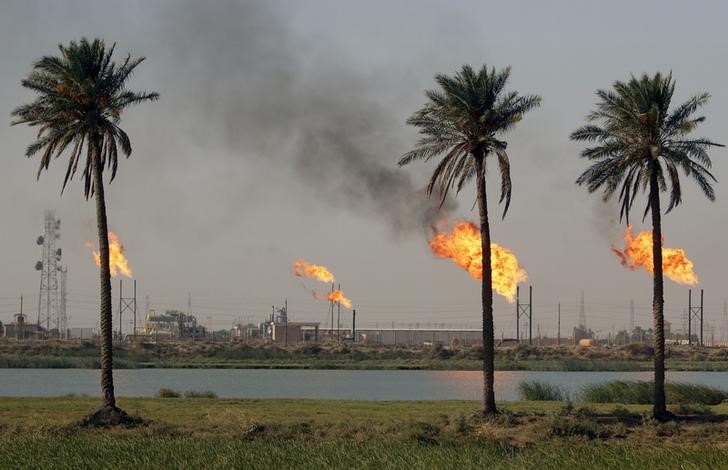By Geoffrey Smith
Investing.com -- Crude oil became the first risk assets to break its post-election rally on Thursday, as the reality of imbalances in the physical market caught up with it once again.
While dollar weakness sent many commodity prices higher for a second straight day in the wake of an election that yielded no clear winner, oil prices fell on signs that the world’s largest producers are still cutting official prices and chasing market share.
By 11:10 AM ET (1610 GMT), U.S. crude futures were down 1.3% at $38.68 a barrel, while the international benchmark Brent was down 1.0% at $40.84 a barrel.
U.S. gasoline RBOB futures were down 0.6% at $1.1015 a gallon, still close to their highest in a week after some strong reports on U.S. inventories this week.
With the market still scratching its head about what the U.S. election result means for oil prices, it’s international events again claiming center stage.
Saudi Arabia grabbed headlines overnight with reports that it has cut its official selling prices for customers in Asia for December shipments of the Arab Light blend. That will now be priced at a 10c bigger discount to contractual benchmarks.
The fight for market share was also evident in reports showing that Iraq’s crude output had risen 6.7% in October to a level well above its agreed quota under the OPEC+ agreement on output restraint. Such figures tends to play badly with Saudi Arabia and Russia, which have reportedly been trying to persuade other signatories to that pact to push back a production increase scheduled for the start of next year.
OPEC's second-largest oil producer produced an average of 3.842 million barrels a day in October, up nearly 250,000 b/d above September level and above a quota of 3.804 million b/d.
“Not bringing more supply on line is key to save price levels and to avoid market turmoil, especially as some of the demand we expected to return will now be slashed by the pandemic’s second wave and the related travel restrictions,” said Rystad Energy’s head of oil markets Bjornar Tonhaugen in emailed comments.
He noted that the uncertainties arising from the U.S. election result will be reflected in uncertainty among the leadership of the OPEC+ bloc, which would have hoped for clearer implications for the direction of U.S. energy policy.
